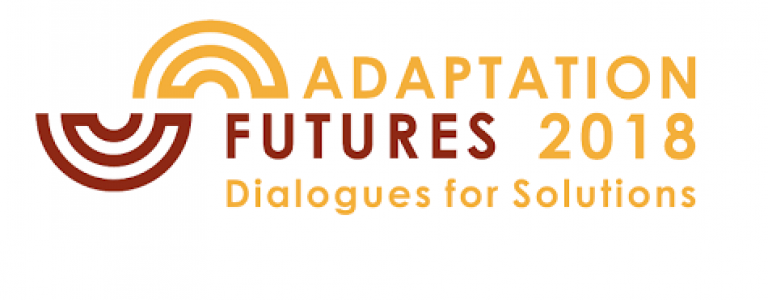IISD at Adaptation Futures 2018
Members of the IISD Resilience program, which hosts the NAP Global Network Secretariat, will join over 1,000 scientists, practitioners, business leaders and policy-makers from around the world in Cape Town, South Africa, for Adaptation Futures 2018 to discuss climate change adaptation.
From June 18 to 21, Adaptation Futures 2018 will convene over 1,000 scientists, practitioners, business leaders and policy-makers from around the world in Cape Town, South Africa, to discuss climate change adaptation.
Members of the IISD Resilience program, which hosts the NAP Global Network Secretariat, will be attending and participating in the following sessions. To connect with us, please get in touch at info@napglobalnetwork.org.
The full program for Adaptation Futures 2018 is available here.
Vertical integration in adaptation: Understanding institutional barriers and enablers across scales
Tuesday, 19 June 2018, 14h15-18h15 | Parallel session S116A/S116B | Room 1.63
Lead organizer: University of Cape Town
This session focuses on multi-level governance experiences and how they can inform institutional arrangements for adaptation. Specifically, it will explore the lessons learned with regards to successful modes of governance, information sharing, participation and the impacts on (and implications for) local communities.
Linking the NAP process and NDCs to accelerate enhanced adaptation action
Tuesday, 19 June, 16h30-18h15 | Parallel session S90 | Room 1.43
Lead organizer: GIZ
This session aims to discuss how to assure that existing progress on the NAP process, knowledge and methodology is linked to countries’ NDCs and how to orient on best practice in this regard to identify best mitigation/adaptation co-benefits and accelerate enhanced adaptation action.
Adaptation and development in Small Island Developing States
Wednesday, 20 June 2018, 14h15-16h00 | Parallel session S91 | Room 1.43
Lead organizer: Malta University
This session explores how communities from Small Island Developing States (SIDS) are affected by climate change, on evidence of sound adaptation (planned and spontaneous), and factors capable of enhancing or inhibiting these nations' long-term ability to deal with climate change.
Adaptation governance from the national to the local level
Thursday, June 21, 09h15-11h00 | Parallel session S186 | Room 2.41
Lead organizer: CARE International
The session will allow participants to share experiences and perspectives on how to shape national adaptation plans to ensure that they are efficient and effective in reaching the most vulnerable in local communities. It will feature contributions from civil society and government mainly in the Global South as well as from researchers studying adaptation policy processes and their dilemmas.
What are we learning about South-South peer learning?
Thursday, June 21, 11h30-13h15 | Parallel session S130 | Room 2.41
Lead organizer: International Institute for Sustainable Development
This session will facilitate an open and honest discussion about the ambitions, approaches, tools, and underlying assumptions and power dynamics related to South-South peer learning in adaptation. It will look at issues ranging from understanding and tracking the impact of South-South peer learning, to the evolving role of Northern actors, and anticipating the next generation of South-South peer learning for adaptation. The session will be organized using a "World Café" format, where each table will be hosted by a global/regional adaptation initiative that emphasizes South-South peer learning.
Upcoming events
Building Bridges: The State of Nature-Based Investments
Join us for a panel at the Building Bridges conference in Geneva, Switzerland, to discuss the state-of-play of nature-based investments and the potential opportunities they present.
Through Her Lens: Women leading change in sustainable agriculture and market inclusion
Despite the critical role that women play in agricultural production, they still do not have equal access to global agricultural supply chains on terms that benefit them.
A Municipal Perspective on the Value of Natural Infrastructure
This webinar will showcase examples the cost-effectiveness of natural infrastructure from a municipal perspective. Focusing on what municipalities need—what evidence and numbers they rely on, and what tools and planning processes are required to ensure that natural infrastructure is assessed alongside traditional infrastructure for cost-effectiveness.
